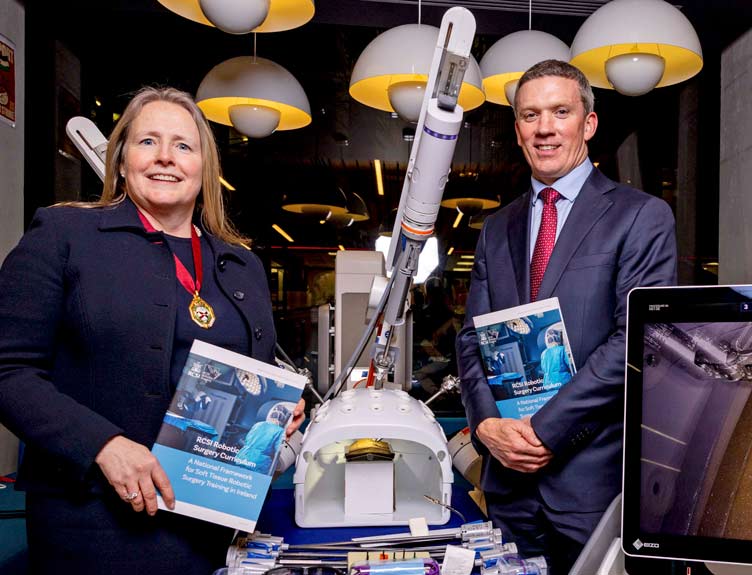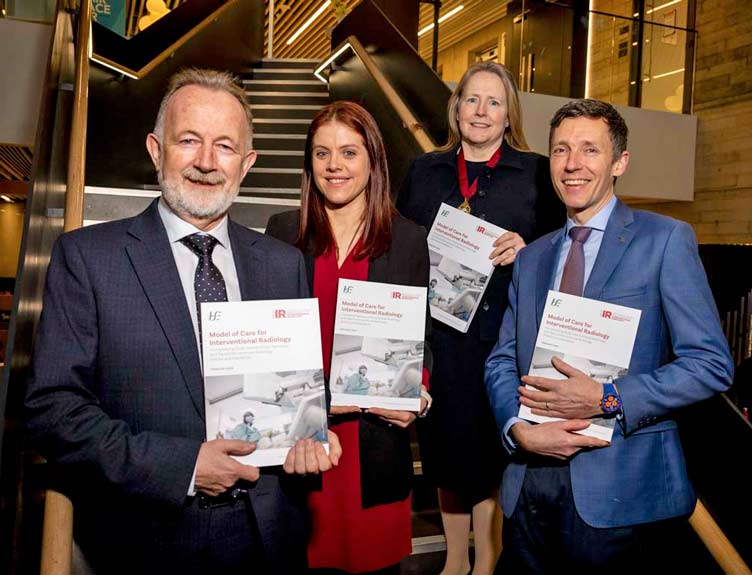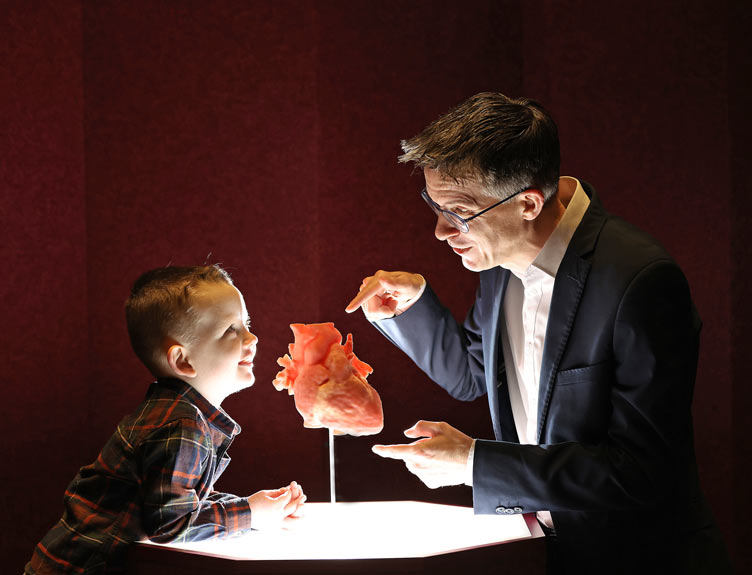RCSI-led COVID-19 study awarded HRB-IRC funding to improve patient clinical care
Scientists and clinicians from RCSI University of Medicine and Health Sciences are leading a groundbreaking study funded jointly by the Health Research Board (HRB) and Irish Research Council (IRC) to develop new and innovative approaches to improve the clinical care of patients with COVID-19 pneumonia.
The Irish COVID-19 Vasculopathy Study (iCVS) project has been awarded €199,000 as part of government funding announced today under the COVID-19 rapid response call. It is one of 26 projects that will receive €5 million funding under the newly-established national, coordinated research and innovation response to the COVID-19 pandemic, complementing the ongoing research work already underway in higher education institutions.
The iCVS cross-disciplinary study is led by Professor James O'Donnell, Director of the Irish Centre for Vascular Biology, RCSI and a Consultant Haematologist in the National Coagulation Centre in St James's Hospital, Dublin.
The study will investigate why patients with COVID-19 develop blood clotting abnormalities leading to micro-clots in the lungs. These micro-clots block normal blood flow throughout the lungs, which coupled with pneumonia, can result in the patient’s oxygen levels in the blood falling to dangerously low levels. In some patients the blood clotting problem also affects other organs and their risk of developing heart attacks and strokes is increased.
“The mechanisms through which COVID-19 triggers such a unique and life-threatening clotting disorder are not understood,” said Professor O’Donnell. “This research programme will use state-of-the-art testing in order to answer this key question which is puzzling doctors and scientists around the world.
“By understanding why these micro-clots are being formed within the lungs, the team aims to identify subsets of Irish patients who would likely benefit from blood thinning medication, as well as specific anti-inflammatory treatments. The study will also investigate whether clotting biomarkers may be useful in order to better define prognosis for COVID-19 patients and thereby prioritise ICU resources, with the ultimate goal of saving lives.”
The study will bring together scientists at RCSI, TCD and UCD with frontline clinicians involved in caring for patients with COVID-19 in three of Ireland’s largest hospitals (Beaumont Hospital, St James’s Hospital and St Vincent’s Hospital respectively).
“Given the urgency of addressing the COVID-19 pandemic, a major strength of the iCVS programme is the multi-disciplinary team involved which includes Irish clinical leaders on each hospital site. With the iCVS scientists and clinicians working in ‘real time’ to address this critical unmet clinical need, we are confident of the value of the study to the Irish and global population,” Professor O’Donnell said.
Professor Fergal O’Brien, Director of Research and Innovation at RCSI, said: “As a focused health sciences university, RCSI’s clinicians and scientists have been at the forefront of the global and national response to COVID-19. Professor O’Donnell and his team at the Irish Centre of Vascular Biology here at RCSI, along with hospital colleagues, have already established Ireland as a world leader in the research and treatment of bleeding disorders. I welcome today’s funding announcement for the Irish COVID-19 Vasculopathy Study which will harness this expertise to improve treatments so urgently needed to improve outcomes for patients.”
Watch Professor James O'Donnell video
Minister for Health Simon Harris said: “Research and development is critical to supporting Ireland’s National Action Plan in response to COVID-19 and in navigating a way forward for individuals, communities and society as a whole. In these extraordinary circumstances, I am delighted to see such collaboration and coordination in a collective battle against COVID-19. These projects have real potential to have an impact on the health and well-being of patients, families, healthcare workers and the healthcare system.
“In particular, having suitable treatments or vaccines is the best exit strategy from COVID-19 and the related restrictions we are living with so I am committed to ensuring a coordinated and proactive approach is taken to ensuring that COVID-19 patients across all settings in Ireland have access to new and emerging treatments as part of clinical trials.”
The Irish Research Council and the Health Research Board joined together to fund the first strand of the call, focusing on the development of medical countermeasures, health service readiness, and social and political countermeasures to COVID-19.
Dr Darrin Morrissey, Chief Executive at the Health Research Board, said: “COVID-19 will test people’s health and our health and economic resilience like nothing in recent history. Research and evidence are critical to understanding how COVID-19 works and key to getting Ireland back open again. I want to congratulate the Irish research community who have come up with an incredible range of research projects to help tackle the health, social and economic challenges that COVID-19 presents.”
As part of today’s announcement, the government also highlighted existing COVID-19 research and innovation projects taking place at RCSI.



